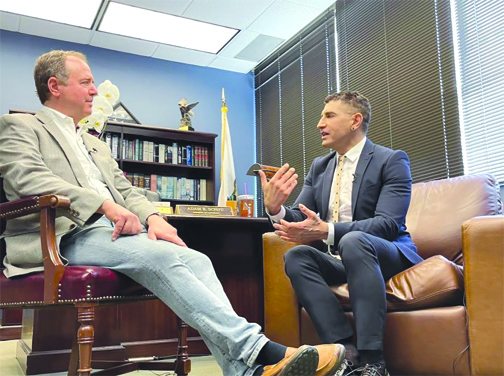
By Mary O’KEEFE
“Motherland” is a new documentary by Vic Gerami, journalist and editor/publisher of the web magazine “The Blunt Post.”
The film is described on IMDB (Independent Movie Data Base) as “following the 2020 unprovoked genocidal attack against Artsakh (Nagorno-Karabakh) Armenians by Azerbaijan and Turkey that killed 5,000 Armenians. Journalist and activist Vic Gerami travels to Armenia to document his ravaged Motherland.”
But the film is so much more than this explanation. It is a history lesson, a tale of war and a warning for the future.
It begins with a history lesson of Artsakh, Armenia and the Armenian people. The first thing shared is that these people have been fighting to keep their culture for well over a millenium. They have faced foes from just about every border including Turkey and Russia.
The landscape that Gerami walks through takes the audience into the beauty of this land and the rich history that has been scattered among the warring parties that seem to attack without warning. This has been going on for years but the people of Artsakh continue to pick themselves up and keep going. Then in 2020 things changed.
It began in September 2020 when Azerbaijan’s forces attacked Nagorno-Karabakh. Gerami pulls the audience into the political battle of this region and the world’s seemingly indifference, except for a few voices, as the attacks escalated and became more brutal.
“I was just covering it the best I could,” Gerami said in an interview with CVW. “The international community was so cavalier about it.”
If this film were seen prior to the attack by Russian forces in Ukraine it would have been impactful; however, seeing it now, with the coverage that has been given to the Ukraine battle so fresh in people’s minds, it is even more powerful.
“Motherland” includes several interviews with journalist experts in the region and elected officials who have been longtime supporters of the region and its people. It also spotlights those in government and business who have turned their backs on the atrocities that have been well documented.
But it is the interviews with those who served in battle that brings the humanity to this most inhumane attack. Those interviews bring a personal face to the war zone.
Make no mistake: This film has a definite point of view; however, the evidence that is presented is compelling. There are disturbing images of torture and even beheadings of those defending Artsakh. Then there are stories of those fighting for Azerbaijan, many of the fighters hired mercenaries, taking phones of the dead and tortured, taking photos and sending those images to victims’ families. The more the audience listens the more familiar it all sounds. It’s not just the genocide focus of this culture but also the stories of how this war played out. It’s the hired mercenaries, the indiscriminate bombing of schools and churches and the connection to Russia that makes it seem it is not a coincidence that what happened in 2020 Artsakh is what is happening in Ukraine now. This type of warfare may be happening a world away but, in truth, it is a warning sign for all.
With Russian support, a ceasefire was brokered in November 2020 but that doesn’t mean there is stability in the region. Armenia and Azerbaijan are still in conflict, and Azerbaijan holds several prisoners of war.
“Armenia is very vulnerable,” Gerami said.
The end of the film poses a question: If you are a witness to war crimes, will you speak for people robbed of their voice?
